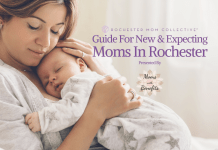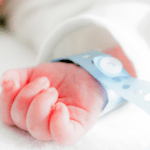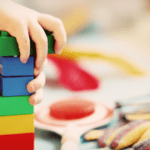
It’s okay if you didn’t know that November is National Adoption Month. I’m an adoptee and I didn’t even know about it until I became an adoptive parent in 2019. I asked myself the same questions you are probably asking yourself right now. What is National Adoption Month for? How exactly do we celebrate adoption?
A Brief History
National Adoption Month has evolved in both length and purpose over the years. Initially, an Adoption Week was started in 1976 by Mike Dukakis, the governor of Massachusetts at the time, who was trying to promote awareness for the need for adoptive foster families for the children in the foster care in his state. The notion gained so much popularity that the president at that time, President Gerald Ford, later made the first Adoption Week Proclamation.
Then, President Ronald Reagan, who was himself an adoptive father, announced the creation of a National Adoption Week in 1987. His announcement speech is beautifully worded and, for its time, was quite bold and progressive. It actually makes me tear up when I read it even now. In his proclamation, President Reagan recognizes not only children within the foster care system, but also children born from unanticipated pregnancies. He describes birth mothers as being brave and selfless in their decision to choose adoption. He advocates for the adoption of children with special needs, both domestically and internationally. These were all topics that at that time was not typically publicly acknowledged or encouraged.
In 1995, President Bill Clinton expanded the week to encompass the entire month, making November officially National Adoption Month. He continued to emphasize foster care and special needs adoption, but his government also created initiatives intended to break down barriers to transracial adoption, the adoption of children into families who are not of the same ethnicity. Additionally, President Clinton championed the use of the internet to help find homes for kids in foster care in 1998. In 2008, President George W. Bush issued the first proclamation about National Adoption Month entirely in Spanish.
Furthermore, there are two other adoption celebrations observed in November:
- Here in the U.S., National Adoption Day is held every November 18th. Launched in 1999, its purpose is specifically to highlight children in the foster care system, particularly older children. You may notice that the news cycle in your area will feature stories of local families in court that day to finalize their adoptions. Politicians may give speeches or public statements in support of adoption.
- Globally, World Adoption Day is commemorated every year on November 9th. This event was started in 2014 by Hank Fortener, the founder of the nonprofit organization AdoptTogether, to bring awareness to the plight of orphans worldwide. On World Adoption Day, people are encouraged to share stories of how their lives have been impacted by adoption but also to participate in concrete efforts to make a difference such as fundraising and/or volunteering to help children in need of families.
Adoption Fast Facts
- Around 5 million Americans are adopted.
- Of the approximately 400,000 children in foster care in the United States, approximately 117,000 are waiting to be adopted.
- In 2021, 54,200 foster kids were adopted, which is a decline of approximately 3,700 from the prior year.
- 52% of children entered foster care in 2019 were 6 years old or older.
- The average age of a waiting child is almost 8 years old.
- Close to 60% of children in foster care spend 2-5 years in the system before being adopted.
- Almost 11% of children spend 5 or more years in foster care before being adopted.
- More than 23,000 children will age out of the US foster care system before ever being adopted.
- Up to 1 out of every 25 U.S. families with children have an adopted child, about half of these have both biological and adopted children.
- An estimated 153 million children worldwide are orphans.
- International adoptions by U.S. citizens have declined from 2,971 in 2019 to 1,622 in 2020.
Why Celebrate National Adoption Month?
In the not so distant past, adoption was something that families kept secret. Perhaps adoptive parents didn’t want adopted children to feel like they were “not really family”. Maybe they were nervous about answering questions about their adopted children’s birth families. Maybe they didn’t have those answers. They likely didn’t want to answer nosy people’s inappropriate questions about their own fertility. Whatever the intention, it sent the message that adoption was something that is shameful. So for generations, it was hidden.
National Adoption Month was one strategy used to try to change that narrative. It brought awareness for the need for foster and adoptive families. It encouraged the building of families through adoption. It validated both children waiting to be adopted and families built by adoption. And in that regard, it has been successful.
Aside from communities who don’t allow adoption for religious reasons, Americans statistically feel positively about adoption. Anecdotally, when our family announced our decision to adopt, we didn’t receive any negative feedback. (I assure you that this is not the result of mere politeness or sensitivity, since plenty of our friends and family have had opinions about our wedding, our home, how we raised our children, etc. No matter how nice they are, people love to give opinions.) Even my and my husband’s jobs and our older children’s school were very supportive and worked with us when we needed to take extended time off to travel to complete the adoption. Culturally, general attitudes about adoption have changed and that is awesome.
So then is recognizing National Adoption Month still necessary?
National Adoption Month Today
If we as a society continue to observe National Adoption Month we need to be honest about which aspect of adoption needs awareness now. The hard truth is that adoptees are four times more likely to die by suicide than non-adoptees. This statistic is heartbreaking and warrants research so changes can be made to eradicate this. While most adoptees do feel grateful (and love) towards their adoptive families, they also carry emotional burdens that they may feel unable to talk about with their adoptive families. Adoption starts with the most unnatural of traumas – a baby that is not going to be taken care of by its biological family. Adoptees grapple with feelings of abandonment and lost identity. They do not know their family health history. Many adoptees face racial isolation in their new communities. It turns out that all of those years of not talking about adoption has not stopped adoptees from feeling adopted.
In the adoption community, we often talk about the adoption triad; the child, the biological parents, and the adoptive parents. Historically though, the focus of National Adoption Month has been on journey and the joy of the adoptive parents. Many garner sympathy for the grief and pain caused by not being able to have biological children the traditional way. Adoptive parents are often seen as altruistic while adopted children are expected to be grateful. There are plenty of monetized TikTok, Instagram, and YouTube channels available where adoptive parents share all of the details of “their” adoption stories. In recent years however, there has been a movement to focus on the other two parts of the triad – the adoptee and the birth family.
So does that mean that all adoption is bad and should therefore not be celebrated? That’s not my message at all. All children deserve safe, stable, loving families. The statistics for children who age out of the foster care system before finding such a home are as grim as the suicide statistic mentioned earlier. Nevertheless, there are steps we can take to improve the purpose of National Adoption Month. We can celebrate the positive and beautiful aspects of adoption while still recognizing that there are elements of adoption that will always be difficult and painful. Here are some things to consider as we honor National Adoption Month this year:
- Elevate adoptee voices. Follow social media accounts of adoptees telling their stories. Hold space for them as they express their feelings, no matter how paradoxical they may seem. A person can feel both grateful for the positive things in their lives and anger or sadness about the aspects of their lives which are unfair at the same time. Believe adoptees when they share their true life accounts of how it feels to be adopted. Their feelings matter. Their stories matter.
- Have compassion for biological families. All birth mothers and fathers are not the villains of every adoption story. Allow birth parents to express their grief and regret. Support reunification. Right at this very moment, there are a countless number of people going through unbelievably difficult challenges in their lives. Instead of shaking our heads and sucking our teeth at the choices people are forced to make when faced with hardships, perhaps we should bow our heads and give thanks for not being in situations like that ourselves.
- Respect the privacy of adoptees and their biological families. Unfollow any social media influencer who makes money from sharing details about their adopted children. My children’s adoption story is theirs just as my adoption story is mine. I don’t tell everyone mine and they can choose to share with whomever they want, whenever they feel ready. Obviously, some personal facts may have to be disclosed to doctors and schools for obvious and necessary reasons but that’s different sharing personal details to strangers on the internet.
Final Thoughts
As we unite to celebrate adoption this November, I encourage us to remember that understanding and support must extend to all members of the adoption triad: adoptees, adoptive parents, and birth parents. Each component plays a crucial role in the adoption journey, and it is essential to recognize and support their unique perspectives and needs. Adoptees embark on a journey of self-discovery, often searching for their roots and seeking a sense of identity. Adoptive parents are driven by love and compassion, providing a nurturing and stable environment for children in need. Birth parents face the difficult decision to place their child for adoption, a choice that requires immense courage and selflessness. By acknowledging and respecting their individual experiences, we can work together to ensure that every child’s right to a safe, stable, and loving home is not just a dream.
Adoption has brought immeasurable joy to my life, both as an adoptee and as an adoptive parent. It is a beautiful way to build a family. Nevertheless, prospective adoptive parents should go into adoption with their eyes wide open. National Adoption Month serves as a poignant reminder of the profound impact that adoption has on the lives of countless children and families across the country. It is a time to celebrate the strength of adoptive families, honor birth parents’ selfless choices, and recognize the resilience and hope of children in search of a loving home. This month calls us to action, inspiring us to break down barriers and stigmas associated with adoption, and to create a society where every child finds a forever family.















